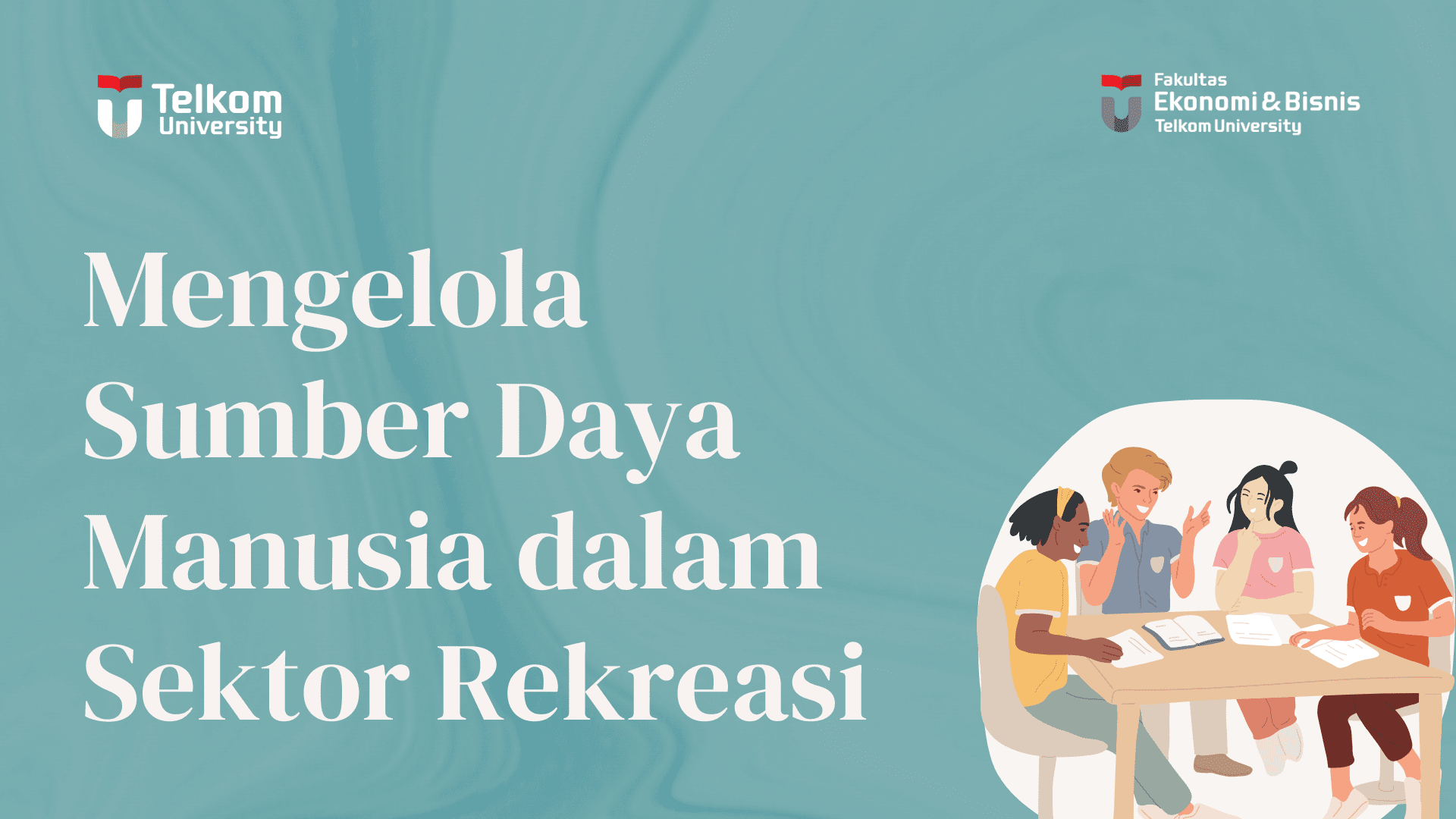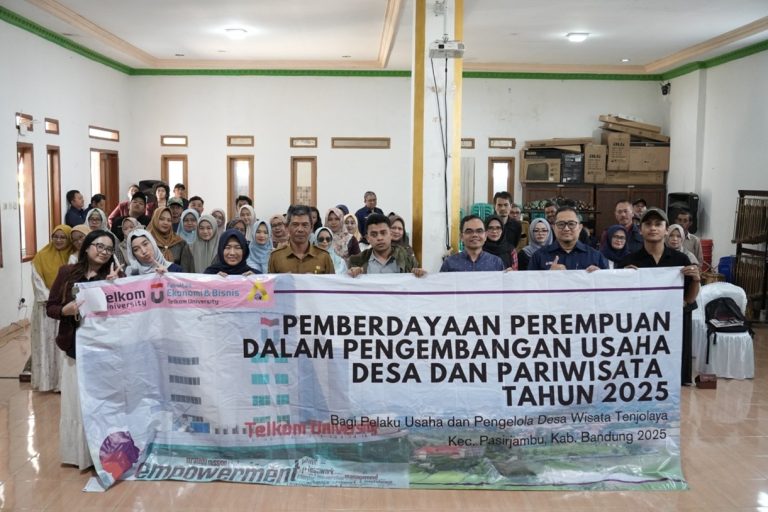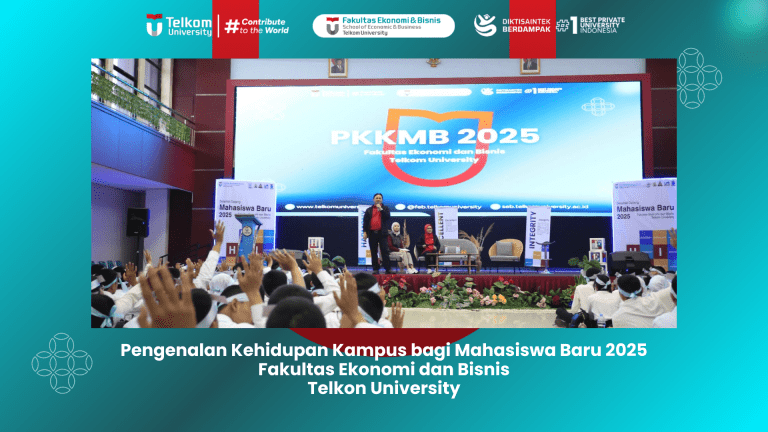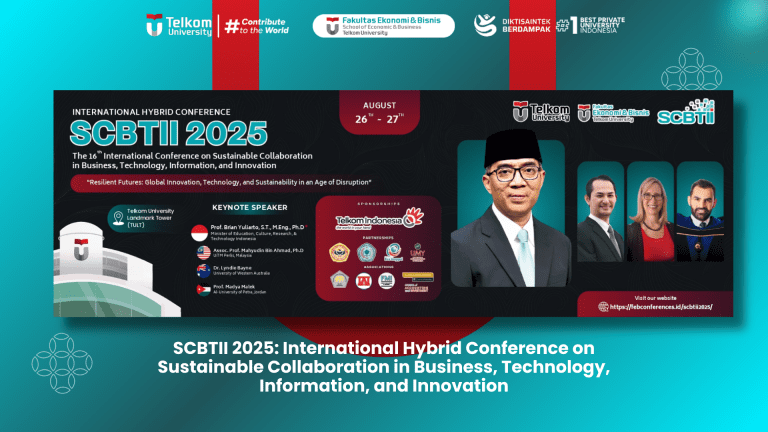Managing Human Resources in the Recreation Sector: Keys to Operational Success
Efficient human resource management (HRM) is one of the critical elements in achieving business success in the leisure sector. The sector relies heavily on direct interaction between staff and customers, so good HR management can contribute to improved customer satisfaction as well as operational efficiency. This article will review effective HR management strategies in the leisure industry, emphasizing the significant role of Telkom University’s Faculty of Economics and Business in preparing qualified professionals in this field.
The Importance of Training and Development
- Orientation Program: Implement an orientation program for new employees to understand the organization’s culture and services provided. This helps employees feel more integrated and prepared in providing services to customers.
- Continuous Training: Providing ongoing training to improve employee skills in customer service, risk management, and utilization of the latest technology. This training should be conducted periodically to ensure employees retain the necessary competencies.
Building a Positive Work Culture
- Inclusive Work Environment: Create an inclusive and supportive work environment, where every employee feels valued and listened to. This can contribute to increased motivation and productivity.
- Rewards and Recognition: Implement a reward program to recognize outstanding employee contributions. This recognition can increase job satisfaction and employee loyalty.
Effective Recruitment and Selection
- Transparent Recruitment Process: Implement a transparent and fair recruitment process to attract quality candidates. This includes using digital platforms to reach a wider range of potential employees.
- Competency-Based Interviews: Using competency-based interview methods to ensure that new hires have the skills and attitudes that align with the company’s values.
Performance Management
- Periodic Performance Appraisal: Conduct regular performance evaluations to provide constructive feedback to employees. This process helps employees understand the aspects that need improvement and provides opportunities to achieve their career goals.
- Clear Goal Setting: Set specific and measurable goals for each employee, so that they can concentrate on achieving the predetermined targets.
Employee Welfare
- Health and Wellness Initiatives: Implement health and wellness programs that support employees’ work-life balance. This may include physical activities, counseling services, or seminars on mental health.
- Work Flexibility Options: Offer flexibility in working hours or remote working options to increase employee satisfaction and productivity.
The role of Telkom University’s Faculty of Economics and Business
Telkom University’s Faculty of Economics and Business has an important role in preparing students to face challenges in human resource management in the leisure sector. Through a well-rounded educational program, the faculty equips students with the necessary skills and knowledge to become competent HR professionals.
- Appropriate Curriculum: Courses such as “Human Resource Management” and “Leadership in Organizations” provide students with a deep understanding of HR management principles that can be applied in the context of the leisure industry.
- Practical Experience and Internships: The opportunity to do an internship in a recreational company gives students hands-on experience in HR management and applies the theories learned in class.
Summary
Human resource management in the leisure sector is a complex but crucial process for achieving business success. With adequate training, a supportive work environment, and an efficient performance management system, companies in the leisure sector can optimize the capabilities of their employees. Through quality education at Telkom University’s Faculty of Economics and Business, future leaders in this sector are prepared to face challenges and make a positive contribution to the leisure industry.




